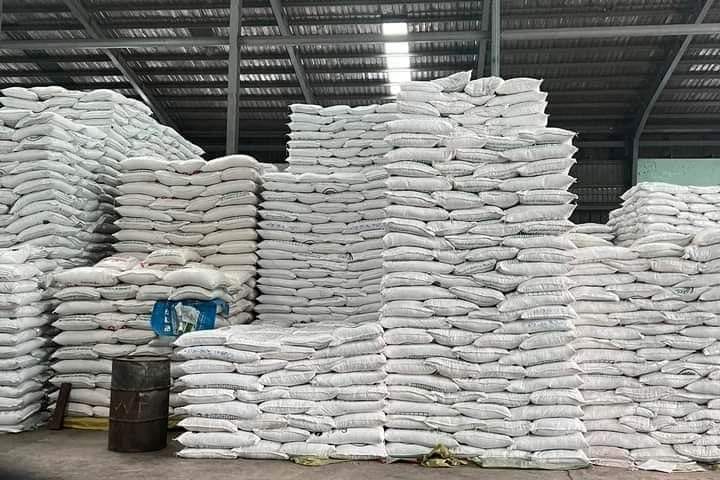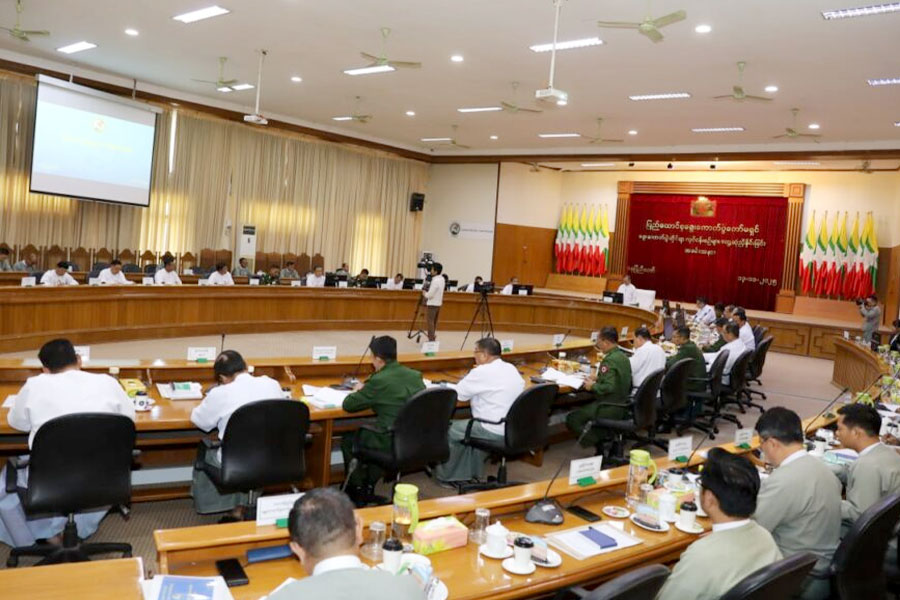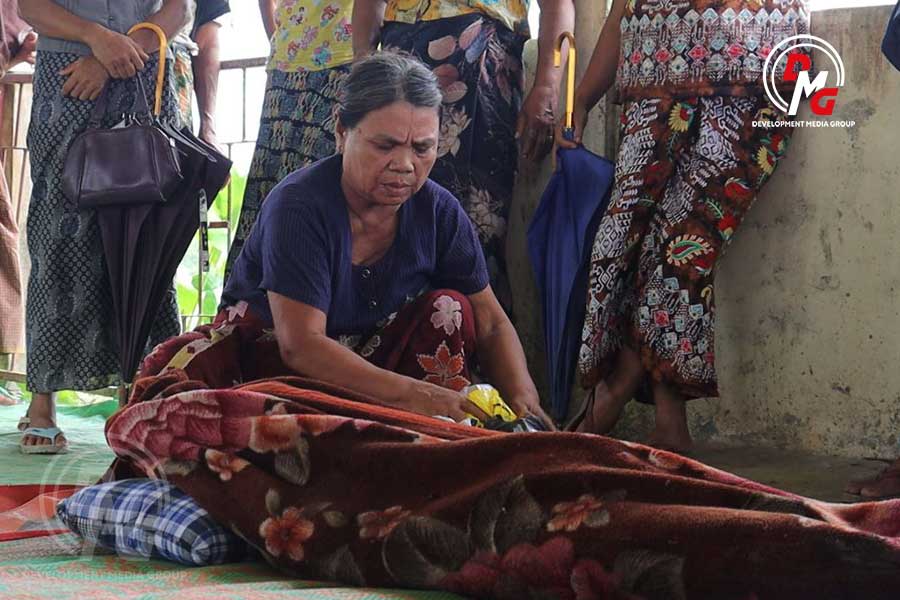- UEC announces 1,025 MPs elected in 2025 general elections
- Junta tightens travel restrictions on Arakanese people in mainland Myanmar
- Regime steps up offensive toward Arakan State via Ayeyarwady coastal route
- Elderly IDP killed, two others injured in junta airstrike on Kyaukphyu village
- AAPP urges urgent international action as junta crimes against humanity escalate
Junta’s move to limit stocking of rice will help reduce rice prices: merchants
“I don’t think the move will help control rice prices. The cost of growing rice has increased, and commodity prices have soared. And people have a lot of cash in their hands. These are the market factors that led to rice price increase,” said rice merchant U Nay La.
26 May 2023

DMG Newsroom
26 May 2023, Sittwe
Rice merchants said Myanmar’s military regime’s move to limit stocking of rice will not help stabilize rice prices.
In its May 9 notice, the regime required business owners to apply for licenses to stock rice in its bid to control rising rice prices in the market. Rice dealers are required to apply for licenses to stock more than 1,000 rice sacks and 5,000 baskets of paddy.
“I don’t think the move will help control rice prices. The cost of growing rice has increased, and commodity prices have soared. And people have a lot of cash in their hands. These are the market factors that led to rice price increase,” said rice merchant U Nay La.
U Nay La said he doubted the order was issued in the interest of consumers.
Farmers and rice merchants can’t afford to stock more than 1,000 rice sacks and 5,000 baskets of paddy to manipulate the market, but only exporters can afford to stock such amounts, said U Nay La.
He is suspicious that the order is to help rice exporters who are seeing a decline in their profits because of high rice prices in the domestic market.
There are manipulators in the rice market who are neither rice dealers nor rice mill owners, and they will never apply for a license to stock rice, said a rice merchant who wished to remain anonymous.
“There are people who manipulate the market because they have money. They are outsiders, and it is quite difficult to control them. They will not apply for licenses,” he said.
Despite the junta’s order, rice prices remain high in the market with prices hitting between 1.8 and 2 million kyats for 100 baskets of paddy. The prices have increased by 1,000 kyats per sack for inferior rice varieties and by 4,000 kyats for better quality rice, according to consumers.
Rice prices have increased due to various factors, said rice merchants. Fewer acres of paddy were grown since last year due to instability, and the yield has also declined because high prices forced farmers to limit their use of fertilizer and pesticide. Meanwhile labor costs have increased, and costs of living has also gone up. People have cash available since few people keep their finances in banks.
Rice prices will decline only by addressing those factors, said rice merchants.















.jpg)

